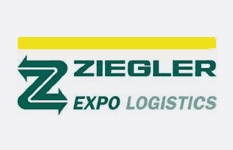Getting shipments to a foreign country is challenging enough, and the last thing event managers need to worry about is solving problems that could have been avoided with a little foresight. Dotting the i's and crossing the t's before a shipment is loaded onto the plane can go a long way toward making the shipping process a painless one for everyone. Here are a few common pitfalls that should be avoided.
PLANNING TOO LATE
Planning early for international even shipment always helps in the long run, according to TWI sales representative Marianne Giddens. Knowing what type of show event properties are being shipped to, and what country they are being held in can help shipping partners identify red flags immediately. For example, you can't bring medical equipment to medical shows in South America without a permit -- a key point that should be addressed early on.
"Some clients don't understand how important the paperwork is. With TWI behind the scenes, we deal with the headaches and not sleeping because things aren't going through customs so our clients don't -- that's why they use us," Giddens says.
OVERLOOKING TIMEFRAMES
The reality is that the timeframes for getting this work done are getting tighter and tighter. The key to smooth international shipping for events is keeping your teams informed, both internally and externally.
"Every event manager knows their game plan for the out years, where they will be going for events and when they are happening. We keep our freight forwarders aware of schedules as soon as we're able to publish that, if it's not proprietary to the company. It's something we want them to know early on. The more people you can keep informed up fron, that's certainly the key," says Lockheed Martin event manager Len Rizzo.
CRATING
Packaging and crating is an international exhibitor's first responsibility; a good rule of thumb is to package event properties as if you are packing your own personal property. If you wouldn't feel right shipping something valuable in your brand's crates, it's time to reassess how you're doing things.
 Crates need to protect and have some survivability if dropped. Remember, a lot of unseen people will be handling your shipments, and you're not in control of your freight at all times.
INVENTORY
Providing a proper, detailed description of everything on a shipment's commercial invoice is critical. While you may know your brand's products and properties by name alone, a product name on an invoice means nothing to customs officials. Provide detailed information on what's being shipped to avoid a headache.
"It will make it easier clearing customs. Sometimes clients will toss in some small extra items in a shipment without listing them on the commercial in voice. If it does get pulled for inspection, it can create problems, even for something as small as an extra power cord," Giddens says.
Having a proper inventory of what you're sending and making sure it's all accounted for can help solve these types of issues. "We like to get our clients' commercial invoice in advance so we can go through it and catch any problems on the front end," Giddens says.
DON'T ASSUME
Drew Camier, Station Manager with TWI's New York office, says the best shipping advice for event managers is don't assume anything. "Especially shipping overseas. If you think you know it, you don't. Customs regulations overseas change on a week-to-week basis. Just because you ship to one place over and over doesn't mean it will stay the same moving forward. There are no slam dunk shipments any more," Camier says.
Crates need to protect and have some survivability if dropped. Remember, a lot of unseen people will be handling your shipments, and you're not in control of your freight at all times.
INVENTORY
Providing a proper, detailed description of everything on a shipment's commercial invoice is critical. While you may know your brand's products and properties by name alone, a product name on an invoice means nothing to customs officials. Provide detailed information on what's being shipped to avoid a headache.
"It will make it easier clearing customs. Sometimes clients will toss in some small extra items in a shipment without listing them on the commercial in voice. If it does get pulled for inspection, it can create problems, even for something as small as an extra power cord," Giddens says.
Having a proper inventory of what you're sending and making sure it's all accounted for can help solve these types of issues. "We like to get our clients' commercial invoice in advance so we can go through it and catch any problems on the front end," Giddens says.
DON'T ASSUME
Drew Camier, Station Manager with TWI's New York office, says the best shipping advice for event managers is don't assume anything. "Especially shipping overseas. If you think you know it, you don't. Customs regulations overseas change on a week-to-week basis. Just because you ship to one place over and over doesn't mean it will stay the same moving forward. There are no slam dunk shipments any more," Camier says.
 Crates need to protect and have some survivability if dropped. Remember, a lot of unseen people will be handling your shipments, and you're not in control of your freight at all times.
INVENTORY
Providing a proper, detailed description of everything on a shipment's commercial invoice is critical. While you may know your brand's products and properties by name alone, a product name on an invoice means nothing to customs officials. Provide detailed information on what's being shipped to avoid a headache.
"It will make it easier clearing customs. Sometimes clients will toss in some small extra items in a shipment without listing them on the commercial in voice. If it does get pulled for inspection, it can create problems, even for something as small as an extra power cord," Giddens says.
Having a proper inventory of what you're sending and making sure it's all accounted for can help solve these types of issues. "We like to get our clients' commercial invoice in advance so we can go through it and catch any problems on the front end," Giddens says.
DON'T ASSUME
Drew Camier, Station Manager with TWI's New York office, says the best shipping advice for event managers is don't assume anything. "Especially shipping overseas. If you think you know it, you don't. Customs regulations overseas change on a week-to-week basis. Just because you ship to one place over and over doesn't mean it will stay the same moving forward. There are no slam dunk shipments any more," Camier says.
Crates need to protect and have some survivability if dropped. Remember, a lot of unseen people will be handling your shipments, and you're not in control of your freight at all times.
INVENTORY
Providing a proper, detailed description of everything on a shipment's commercial invoice is critical. While you may know your brand's products and properties by name alone, a product name on an invoice means nothing to customs officials. Provide detailed information on what's being shipped to avoid a headache.
"It will make it easier clearing customs. Sometimes clients will toss in some small extra items in a shipment without listing them on the commercial in voice. If it does get pulled for inspection, it can create problems, even for something as small as an extra power cord," Giddens says.
Having a proper inventory of what you're sending and making sure it's all accounted for can help solve these types of issues. "We like to get our clients' commercial invoice in advance so we can go through it and catch any problems on the front end," Giddens says.
DON'T ASSUME
Drew Camier, Station Manager with TWI's New York office, says the best shipping advice for event managers is don't assume anything. "Especially shipping overseas. If you think you know it, you don't. Customs regulations overseas change on a week-to-week basis. Just because you ship to one place over and over doesn't mean it will stay the same moving forward. There are no slam dunk shipments any more," Camier says.
































































